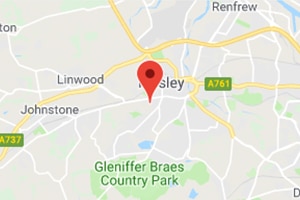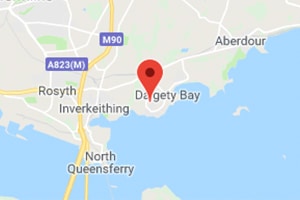Over time, sludge, rust and debris build up inside heating systems. At first, this is harmless enough, but if left unchecked, it can lead to blockages and corrosion that reduces the efficiency of your heating or prevent it from working at all.
Even more worryingly, contaminants in your pipework can put a strain on the internal components of your boiler, forcing you to replace it sooner than otherwise at considerable expense.
Fortunately, there is a solution called a powerflush that removes all the gunk in your system and protects all the components from excessive wear and tear.
What Is A Powerflush And Why Is It Necessary?
Newly-installed boilers, radiators and pipes are rust-free. However, over the course of months and years, water reacts with their internal surfaces and starts to corrode them. Eventually, small particles of rust break off from the main body of metal and settle in a mud-like substance, affectionately called “sludge” by those in the industry.
This deposit is what ultimately leads to blockages in your heating system. It gets everywhere and prevents water from moving freely.
A powerflush is a form of preventive maintenance that stops sludge from building up to the extent it interferes with the operation of your heating system. Here, a qualified professional attaches a cleansing device to an inlet and then pumps a solution through your pipes and radiators to clean out the debris.
Typically, homeowners get a powerflush every eight to ten years. However, the frequency depends on the unique needs of your system and how often you get professional maintenance. Older systems made of rust-prone metals will need powerflush servicing more often.
powerflushing is something that you should do before you install a new boiler. Failing to do so can cause existing sludge to block up the new unit, damaging it from the moment you begin using it.
How Does A Powerflush Work?
A powerflush involves using a pump to force cleaning solutions through your pipes and radiators. The type of pump you use depends on the boiler you have. Engineers will fit them either to the circulation pump on a system boiler or the pump head on a combi.

Commercial cleaning solutions contain multiple agents, all with different cleansing actions. For instance, there are cleaning fluids that remove existing corrosion and prevent new damage from forming. There are also limescale removers – great for hard water areas – and a chemical that eliminates sludge explicitly. The engineer performing the work collects all the wastewater and ejected particles and then disposes of them safely.
Sometimes, forcing cleaning solution through the pipes at high pressure isn’t sufficient to dislodge all the sludge. In these cases, engineers use an assortment of tools to physically dislodge and remove any additional deposits and collect them in a bucket.
High-quality engineers will record the difference in the performance of your radiators and show you the results of their work. In general, you should see more even distribution of temperature across your radiators, and the entire system should operate more efficiently.
Getting a powerflush is a time-consuming process. Typically, engineers spend between 4 and 8 hours cleaning out the gunk. Still, proceedings can go on longer if you have an older system.
Please also note that a powerfush is a very specific intervention with a singular purpose: to remove corroded material. Engineers will often discover additional issues with your radiators as they carry out their work that requires different maintenance to fix.
How Do You Know You Need A Powerflush?
Powerflushes are something you can automate as part of your regular household maintenance. However, there are often clear signs indicating you need one sooner rather than later.
- Some radiators don’t heat up as expected, even after bleeding
- It takes a long time for your heating system to get warm
- Your radiators make a lot of noise as they heat up
- Your boiler pump makes a lot of noise from the moment you switch on the heating
- Water doesn’t come out of the valve when you bleed your radiators
- You notice cold areas at the bottom of your radiators, even after bleeding
Please note that a powerflush can only clean out your heating system. It cannot repair other aspects of it, such as cracks or leaks. For that, you’ll need to get your plumber to carry out additional work.
Also, you don’t have to determine whether you need a powerflush yourself. Engineers will take note if you have any of the above problems and will recommend the best course of action. Qualified gas engineers can check for things like the buildup of sludge and the current state of your system.
How Much Does A Powerflush Cost?
The cost of a powerflush varies according to the size and complexity of your heating system (and other factors, such as the accessibility of your home and the area of the country in which you live).
A powerflush on a small, simple system usually costs around £300. Larger homes and country mansions can see prices rise to more than £1,000.
The severity of your current sludge problem is also a significant driver of cost. Suppose you have a lot of corrosion or sediment. In that case, engineers will use more cleaning solution and tack these costs onto your final bill.
Even though a powerflush costs a fair amount, it is economical over the long term. By preventing the buildup of sludge and reducing the propensity for corrosion, your heating system hardware – including your boiler – will last longer.
Which Systems Can Be Powerflushed?
Not all heating systems are amenable to powerflushing. It all depends on your particular setup.
In general, any system that uses twin entry valves is not compatible with powerflushing. Electrical heating systems are also incompatible since they use entirely different technology to provide heat.
Some homeowners have pipes smaller than 15mm in diameter. Again, these require a different approach from powerflushing them out.
There is a difference between a powerflush and a chemical flush. Engineers use a mechanical pump to powerflush radiators that forces the cleaning solution through the pipes. For the chemical variety, they simply insert additives in the system and allow them to circle under native pressure. The latter is ideal if corrosion is a significant issue, but blockages are not.
Should You Always Powerflush?
While powerflushing is a potent technique for dealing with detritus in your heating system (and improving efficiency), it can’t resolve all problems. Engineers, for instance, can only clean out existing sludge: they can’t use the technology to replace defective parts or substantially reduce the rate of corrosion.
Competent engineers will advise you on the cost-benefit situation. If you’re spending £400 every eight years on a powerflush, you’re probably getting decent value. If, however, corrosion is so great that you need a flush more often, then it may work out cheaper to swap out old pipes and boilers for new ones. Manufacturers now do an excellent job of making their products more resistant to corrosion and amenable to anti-corrosion solutions. Also, make sure your engineer add central heating inhibitor to your system when refilling it. Inhibitor works to prevent corrosion in your system after being cleansed.
Can You Powerflush Central Heating By Yourself?
While there are powerflushing DIY videos on the internet, most professionals recommend against attempting to carry out the work yourself. Unlike, say, bleeding a radiator, the risks of the work are higher and substantially more complex. Experienced engineers make powerflushing look remarkably easy, but in reality, it’s a tough job, involving considerable skill, talent and patience.
If you do attempt to carry out a powerflush yourself, you may also invalidate the warranty on your boiler and heating appliances. Engineers carry certificates that prove to OEMs that they carried out work on your heating system according to their requirements.
Powerflushes tend to differ from one provider to another. Choice of chemicals and processes changes. The quality of the work itself also varies – as with any brand. Some are diligent and only hire qualified professionals who know what they’re doing. Others take a more cavalier attitude. You can find a good service by checking the reviews left by other customers.
There are thousands of registered engineers across the UK with certification to carry out a powerflush. Before beginning work, reputable specialists should provide you with an understandable, no-obligation quote.
What Are The Advantages Of Powerflushing?
Powerflushing offers homeowners a plethora of benefits that make the initial investment worthwhile. For starters, removing sludge helps to make the radiators work more efficiently. You no longer have to wait around for hours for rooms to warm in the winter. Furthermore, powerflushing helps to reduce your heating bills and cut your carbon footprint. Finally, it lets you push off boiler replacement further into the future by reducing wear and tear. It may, therefore, be something you should invest in sooner rather than later.
If you’re looking to become a heating engineer, take a look at our part-time and full-time gas engineer courses aimed at new entrants. We also offer more advanced plumbing courses for existing tradespeople who want to specialise further.


